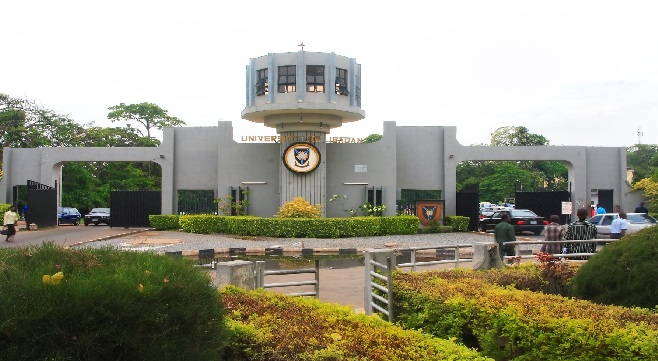Globally, Covid-19 has great impacts on every sphere of human lives from the economic, educational, entertainment and political sector. From states sliding to a recession, to individuals losing jobs and the closure of schools, the new normal emerged after the rise of the Covid-19 pandemic.
The University of Ibadan in adapting to the new normal halted a multitude of her physical activities ranging from physical classes and social interactions while on campus. The Legislative arms of the Students’ Associations also halted socio-physical interactions, although the hallowed chamber of the Students’ Union dd have their physical sittings. The question is, ‘Why is there the presence of one hundred and eight (108) Honorable members even though the University frowns at social interactions on campus? If the Students’ Representatives Council can cater for the presence of more than a hundred honourable, why can’t the lesser legislative houses who are smaller in size also cater for the arrangement of social distancing and other Covid-19 protocols?
The new order of inter-relationship and consultation of the House is restricted only to the faculties, halls, and departments’ houses which are the virtual sittings through the use of Zoom and GoogleMeet among others. Noteworthy of understanding is the cross-examination of the use of the virtual system for legislative houses, its impacts on legislations and as well as recommendations based on the subject matters discussed.
VIRTUAL LEGISLATURE
The impact of Covid-19 on the legislature on campus is the familiarisation with the virtual legislature. Honourables on ties and shoes now have to stay glued to the screen of their phones or laptops to attend sittings which they would have walked miles to if they were held physically. Virtual sittings have saved time and energy needed for effective and efficient productivity
In an interview conducted, Mr Ishola Oluwatofunmi, the Senate President of NAPSS UI, identified some positive impacts of the virtual legislature. He explained that the negative aspects seem much obvious compared to their counterparts. Ever since its (Covid-19) outbreak, it has been an eye-opener for a need to reposition the legislature in such a way that legislative duties or functions can be carried out using modern technologies. In adapting to this order, legislators were being trained on how to perform their legislative functions using modern technology and it has distinguished a 2021 students’ legislature house from a 1988 students’ legislative house.
Furthermore, on his assessment of the virtual legislature, he opined that “Virtual sittings seem more convenient and suitable. However, as regards the convenience and suitability of virtual sittings to the parliamentarians, is it accessible to the users?”
Virtual sittings have also helped to cut the houses’ budgets on the purchase of various items for the refreshment of the honourable members. Also, it helps avoid the excuses of absent parliamentarians as notice of the sittings would have reached them before the sittings. However, many parliamentarians complain of inadequate power supply and insufficient data. On the attendance of the SRC sittings, less than sixty (60) honourables were present. That reveals how poor the honourables were responding to physical sittings compared to the virtual sittings that are in vogue. Virtual sittings have therefore provided ease to parliamentary proceedings in the University.
CONS
Like a coin, virtual sittings are also double-faceted. As earlier mentioned, Mr Ishola Oluwatofunmi opined that virtual sittings “have more negative effects than positive ones.” Even the University herself is finding it hard to adapt to the new order. If complaints about virtual sittings are rampant, that shouldn’t be a surprise.
The virtual sitting has slowed down political and leadership processes because some houses and their executives have not been inaugurated. So, the new normal is actually drawing the houses backwards.
Another disadvantage associated with the new order of virtual sittings is the technical issue. Connectivity, poor network and erratic power supply are among the factors that are inhibiting the success of virtual sittings in the University.
Furthermore, there is the poor attitude of the honourable members. More than fifty percent (50%) uphold the belief that anything virtual will not work, ranging from classes, meetings and sittings. This attitude and harmful mindset have impeded the success of virtual sittings.
Mr Timileyin of the Ransome Kuti Hall said, “Physical sittings is more preferable because matters at hand can be deliberated on more extensively unlike the virtual sittings where brevity is important.” As a seasoned student parliamentarian, he also preferred physical sittings.
Lastly, there is a high likelihood of the absence of rule of law that should be upheld in legislative houses as parliamentarians have much freedom exercisable in virtual sittings.
VERDICT
After the gross examination of the virtual sittings in the University, the writer would love to make verdicts. Drawing inferences from the series of interviews conducted with seasoned and highly experienced parliamentarians, they all voted against virtual parliamentary proceedings due to some high level of unpredictability, less productivity and lack of professionalism.
Moreover, the novelty of virtual legislature to the university tends to be the major defect as the level of adaptability to it has been distress. Its adaptability might require a lot of time which will make the legislative house inefficient.
Therefore, a physical legislature will be highly productive. As the Student Representatives Council with more honourable members than the faculties, departments and halls made provisions to protect its honourables from contracting the virus, other associations should be able to strategise on this mechanism as stated by the University Emergency Response Team to stay free of the virus.
In conclusion, I will end with this question. If religious centres (mosques and churches) are open for worships on campus, why can’t the houses be allowed to have a physical parliamentary proceeding?
CASSIUS Writes




